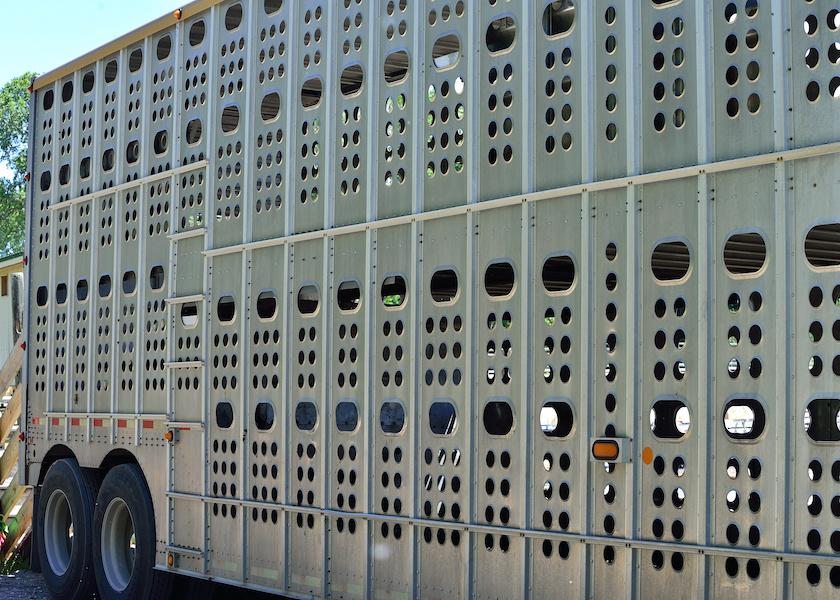A New Tool for Better Calf Transport

Thousands of U.S. dairy calves travel cross-country at very young ages each year. Now, a pair of Canadian entrepreneurs has launched a new technology to raise the level of comfort for farm animals in transport.
“Transport Genie” is an electronic sensor relying on artificial intelligence to monitor the micro-climate of loaded livestock trailers. The system uses the internet of things (IoT) to monitor the environment inside livestock trailers during loading, in transit, and in packing plant holding zones.
The data collected by Transport Genie monitor a broad range of conditions inside of trailers, including temperature, humidity, carbon dioxide, ammonia, vibration, and surface temperature. Users can set thresholds for these factors at desired levels. If those levels are exceeded, the system automatically alerts the driver and any other manager who wants to receive the information.
Managers also benefit from real-time identification of location of the load. The system keeps an electronic record of activities throughout the duration of the trip.
The sensors also can be linked to other machines to automatically trigger start-up of stress-abatement tools like fans or misters. This allows the driver to focus on driving, without the need to operate other equipment or stop regularly to check the condition of the animals.
All trailers can be retrofitted with the sensors, but the company also is collaborating with trailer manufacturers in The Netherlands and Canada to include the technology in the original manufacturing of their trailers.
Calves are just one livestock segment served by Transport Genie. The technology can monitor transport conditions and enhance the welfare of all species, including older cattle, pigs, poultry, sheep, and even racehorses.
To date, Transport Genie has been most widely researched and used in Canada, Mexico, Switzerland, the EU, Australia, and the Philippines. But the sensors are designed to interface with data systems all over the world. The company is making inroads in the United States, and recently demonstrated its capabilities to the Minnesota Turkey Growers Association.
Transport Genie also is participating in a large study to measure and validate the Thermo-Assisted Drying and Decontamination (TADD) system as a part of a biosecurity protocol to make sure livestock trailers are properly sanitized and do not serve as vectors of disease transmission.
While they do manufacture their sensors, Transport Genie views their company as a data and information enterprise, not an equipment manufacturer. The equipment is merely the means to gather the really critical product, which is the data.
“We basically provide assurance by using data and predictive analytics to various stakeholders in the animal protein food chain,” Trasport Genie president and CEO Joel Sotomayor told AgFinance Network. “We can ensure that all actors in the transportation piece of the food production chain are doing their very best to deliver animals to their destination in stress-free conditions.”
Transport Genie was named one of Ontario’s Excellence in Agriculture Award winners in 2019.
A graphic depiction of how Transport Genie works can be viewed in this video.







